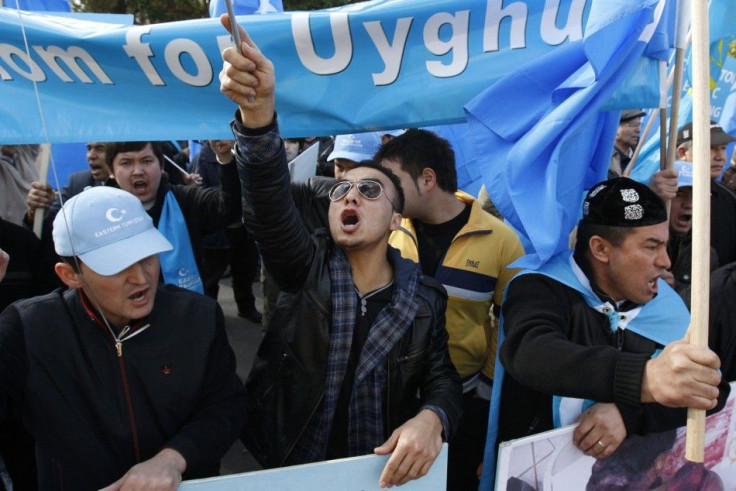Nike and Coca-Cola Lobby Against Bill Targeting Xinjiang Forced-Labor
KEY POINTS
- The New York Times finds millions of lobbying cash goes to weaken a Chinese labor bill
- China is said to put its ethnic minority company into forced labor
- Proving labor is not tied to human rights issue is no easy task
Multinational corporations such as Nike and Coca-Cola are among those lobbying against a House bill that would prohibit the import of goods made in forced-labor camps in China, the New York Times reported.
Introduced by Rep. James McGovern, D-Mass., in September, the Uyghur Forced Labor Prevention Act passed through the House of Representatives on a 406-to-3 vote. The measure, if passed, would bar the entry of goods produced in China’s Xinjiang region that were “manufactured by convict labor, forced labor, or indentured labor under penal sanctions.”
It has been alleged that the Chinese Communist Party runs re-education camps where inmates from ethnic minorities are detained and made to serve the party as free or low-cost labor in factories.
Congressional staffers speaking to the Times on condition of anonymity, along with lobbying records compiled by the newspaper, reveal companies with a global reach are pressing for lawmakers to water the bill down.
Among those lobbying against the Uyghur Forced Labor Prevention Act is Apple, the report said. Documents reviewed by the Times show the company wants to extend deadlines for compliance, release supply-chain information to congressional committees rather than the public, and have the U.S. government designate certain Chinese entities as among those suspected of human rights violations against the Muslim minority population.
Apple, however, disputed this, saying it believed the Uyghur act should become law. The Times suggested the measure has enough support in the Senate to make its way to President-elect Joe Biden’s desk by early next year.
In response to the report, Coca-Cola said it “strictly prohibits any type of forced labor in our supply chain.” Instead of “lobbying against” the bill, Nike spokesperson Greg Rossiter said the company was in “constructive discussions” about the legislation.
After the bill passed in September, the U.S. Chamber of Commerce said the legislation was well-intentioned, but missed the mark. Targets of the provision, it suggested, would likely shift their work elsewhere rather than address the issue of human rights.
On Nike and Coca-Cola in particular, the Times found the two companies combined for an estimated $5.6 million on lobbying efforts in Congress and other federal agencies. Nike in particular was found to have spent money targeting the Uyghur act.
The Times report added, however, that disengaging from human rights issue in Chinese labor is complicated by the lack of transparency in the Communist government. Richard A. Mojica, a lawyer at Miller & Chevalier – a litigation firm specializing in tax and international business – said it could take months for a company to show it has no involvement in forced labor.
“Rebutting a presumption of forced labor is going to be a very challenging endeavor,” he told the Times.

© Copyright IBTimes 2024. All rights reserved.




















